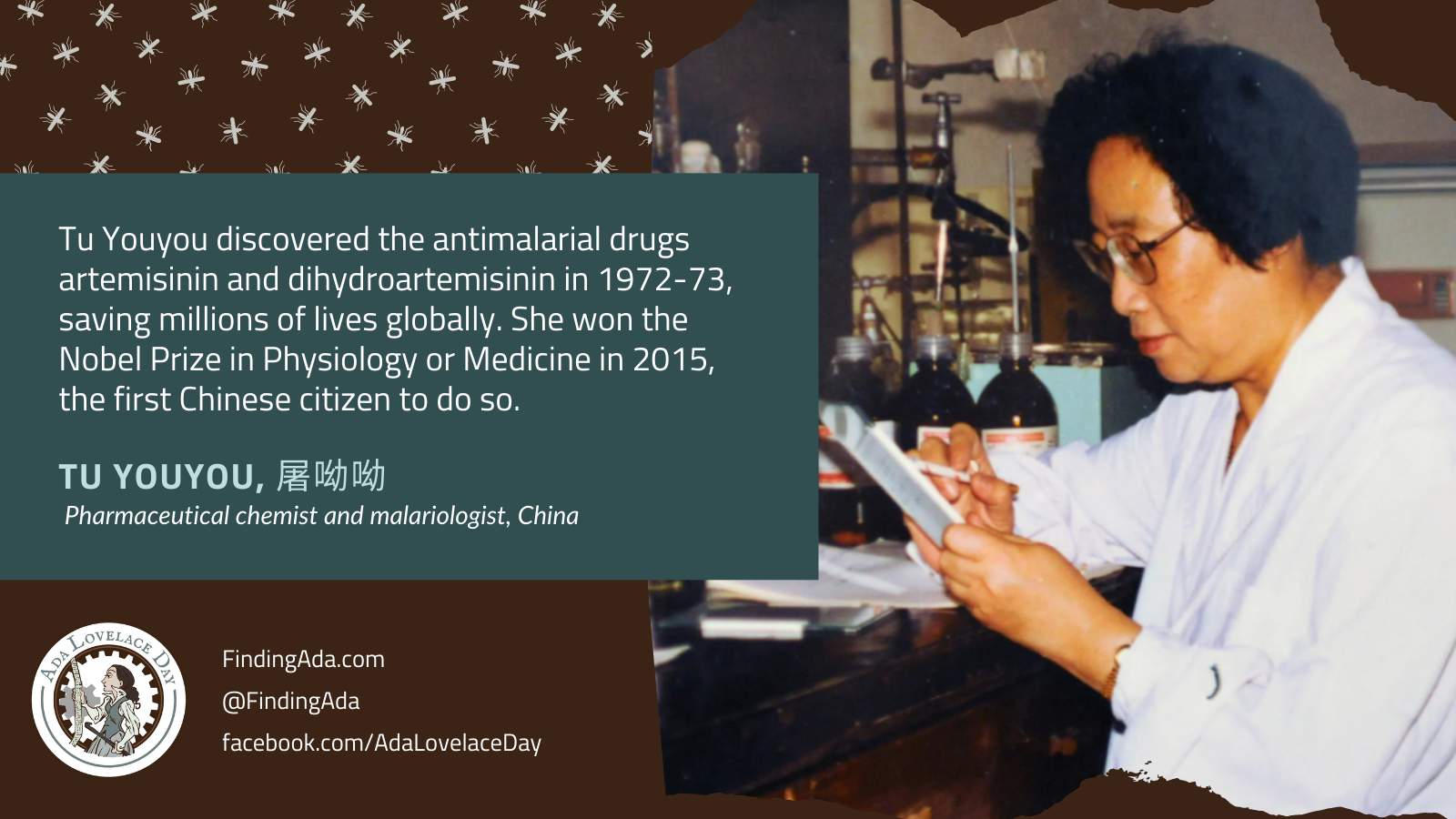
Tu Youyou, 屠呦呦
Tu Youyou is a Chinese phytochemist and pharmaceutical chemist who discovered the antimalarial drugs artemisinin in 1972 and dihydroartemisinin in 1973. She was awarded the Nobel Prize in Physiology or Medicine in 2015, the first Chinese citizen to receive a Nobel in that category and the first Chinese woman to receive a Nobel in any category.
In 1969, Tu was recruited to lead Project 523, a research group tasked with finding a treatment for malaria. She began by talking to practitioners of traditional Chinese medicine and compiling information about 640 folk remedies in a book, A Collection of Single Practical Prescriptions for Anti-Malaria. She and her team then began testing, screening over 2,000 recipes and making 380 herbal extracts from around 200 herbs.
One herb, sweet wormwood (Artemisia annua) was often prescribed for “intermittent fevers”, a common symptom of malaria. Instructions for its preparation could be found in a 1,600-year-old text, in a recipe titled, Emergency Prescriptions Kept Up One’s Sleeve. Initial tests seemed to show that the sweet wormwood was ineffective, but after reading The Handbook of Prescriptions for Emergency Treatments, a book about traditional Chinese herbal medicine written in 340 by Ge Hong, Tu realised that a low-temperature extraction method was needed because the usual boiling water method destroyed the active compounds.
In 1972, Tu isolated the active compound, qinghaosu (青蒿素), or artemisinin as it is known in English. After successful animal trials, Tu tested the compound on herself. A year later, while working on confirmation of the structure of the artemisinin, she accidentally synthesised dihydroartemisinin, which is now used in combination with piperaquine to treat malaria.
Tu’s work wasn’t made public internationally until the 1980s. Artemisinin-based combination drugs have been the default treatment for malaria since the early 2000s and have saved millions of lives globally.
Further reading
- Tu Youyou, Wikipedia
- Tu Youyou, Kara Rogers, Britannica,
- Tu Youyou – Facts, The Nobel Prize, 2015
- Tu Youyou: how Mao’s challenge to malaria pioneer led to Nobel prize, Tom Phillips, The Guardian, 5 October 2015
- Nobel Prize winner Tu Youyou helped by ancient Chinese remedy, Celia Hatton, BBC, 6 October 2015
- Nobel Laureate Tu Youyou, Malaria, And The Discovery Of Artemisinin, Dale Debakcsy, Women You Should Know, 9 May 2018
- Five amazing female scientists you’ve probably never heard of, Suw Charman-Anderson, The Guardian, 25 July 2018
- 6 women who are changing chemistry as we know it, Frankie Macpherson, Science Focus, 11 February 2021